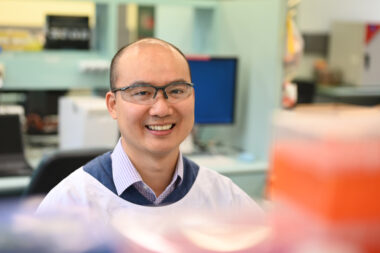Using artificial intelligence to assist in fertility treatment raises significant ethical concerns that need to be addressed, Monash University researchers have found.
While machine learning tools may improve the selection of human embryos for transfer, improving the chances of a successful pregnancy and reducing the time and cost of treatments, there are myriad worries including the risk of dehumanising patients, algorithmic bias, transparency and equitable access.
The article, published by the European Society of Human Reproduction and Embryology, was written by Dr Julian Koplin, Dr Molly Johnston, Amy Webb, and Professor Catherine Mills from the Monash Bioethics Centre and Professor Andrea Whittaker from Monash’s School of Social Sciences.
“The use of AI in embryo selection means that computer algorithms are beginning to make decisions about who is brought into the world,” lead author, Dr Koplin said.
“There are some important benefits to this technology – but it does involve AI interfering with a particularly sensitive area of human life, which needs to be handled carefully and respectfully.”
While these ethical concerns do not rule out the use of machine learning tools in embryo assessment, deliberate, considered decisions about how accountability for clinical outcomes will be managed, how the tools will be monitored, and how their use will be communicated to patients are needed.
AI embryo assessment tools work by analysing images and/or videos of embryos, then providing predictions of embryo quality. These tools are already used in conjunction with embryologist grading, but also have the potential to replace human grading altogether. Early evidence suggests AI may outperform human embryologists, produce more consistent embryo assessments, and significantly reduce assessment times.
Co-author Dr Johnston said several assisted reproductive clinics in Australia have recently begun rolling out AI in clinical practice, with many others likely to soon follow.
“However, little scholarly attention had been paid to how this technology was being implemented or made available to patients, the potential negative impacts on patients and providers, and the overarching governance of the technology,” said Dr Johnston.
The authors say there is an urgent need for a deep understanding of the relevant ethical, social and regulatory issues to ensure the technology is used in a way that is appropriate and preserves public trust.
“Before this paper, there had been limited investigations into the ethics of AI embryo selection,” Dr Koplin said.
“We hope to have helped map the major ethical concerns; and to have made some preliminary suggestions for how these technologies can be implemented ethically.
“For example, we argue that since some patients may have genuine moral objections to the use of AI to make decisions about which children they have, they should be informed about its use, and should ideally be able to opt out.’’
Co-author, Amy Webb, said the research offers industry stakeholders and healthcare professionals “an opportunity to reflect on the implications of these technologies, particularly their impact on the assisted reproduction technology (ART) workforce and patients”.
“We highlight the importance of transparency and informed choice for ethical, equitable implementation – essential for maintaining public trust and protecting those who may be vulnerable,” Ms Webb said.
The team aims to publish more research on these themes in 2025.
To view the paper, please visit: https://pubmed.ncbi.nlm.nih.gov/39657965/
- ENDS -
RESEARCHERS
Dr Julian Koplin
Monash Bioethics Centre
T: +61 (0) 466 910 113
MEDIA ENQUIRIES
Chris Bartlett
Media and Communications Manager
T: +61 (0) 422 087 764
E: [email protected]
GENERAL MEDIA ENQUIRIES
Monash Media
T: +61 (0) 3 9903 4840
E: [email protected]
For more Monash media stories, visit our news and events site


